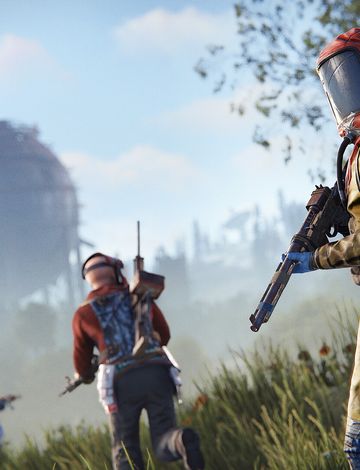Rust: A Hardcore Survival Test Like No Other
Survival games often stir debate in the hardcore gaming world. They walk a fine line between innovation and frustration. I love testing my limits and diving into competition. In fact, Rust is a game that pairs brutal survival with fierce PvP action. But does it pull this off perfectly? Let’s find out.
Brutal Beginnings
In Rust, you start naked and alone on a harsh island. Everything from the wildlife to other players wants you gone. At first, you only have a rock and a torch. Your first few minutes are a frantic scramble for wood, food, and a place to hide. What’s more, each server is randomly generated. You’ll face a brand-new, brutal map every time. That means you must adapt and plan on the fly.

Detailed Survival Mechanics
The game’s survival systems are detailed and unforgiving. You’ll find yourself juggling food, water, and shelter while fending off rivals and AI threats. The crafting, base building, and managing your supplies aren’t optional extras. They’re essential if you want to live another day. The systems are solid, but you will spend hours gathering materials. That endless grind can be brutal, especially if you are new to survival titles.
Depth and Complexity
What really sets Rust apart is its depth. You can follow a detailed tech tree, use animals and even helicopters, and set up complex automation. For players who enjoy fine-tuned control, Rust is a dream game. Moreover, frequent updates keep things fresh. One patch might add musical instruments, another brings new wildlife groups, and yet another adds a detailed electrical system. This constant stream of new content keeps you on your toes.

Player Interactions
Rust’s unpredictable player interactions are another high point. Forming alliances, raiding enemy bases, and the fight for dominance on the island create narratives unique to each session. This dynamic interaction keeps the gameplay fresh and engrossing, ensuring no two experiences are the same.
Challenges and Flaws
However, Rust is not without its flaws. The relentless grind can be overwhelming. Newcomers will find the initial learning curve steep and unforgiving. Building a stable existence takes time, patience, and repeated failures. Furthermore, the game’s open nature can invite toxic behavior. Griefing is rampant, and the lack of enforced rules means that newer players are easy prey for seasoned veterans. This can unduly tilt the balance of power and drive away those who don’t have the fortitude for such high-stakes survival.

Visuals and Immersion
Rust has undergone remarkable graphical overhauls over its decade-long journey. The environments, while desolate and deadening, are stunningly rendered. The atmospheric effects, from blistering heat to chilling cold, immerse you fully into this brutal world. The character models and animations, though not always groundbreaking, are solid and consistent with the game’s grim aesthetic.
Conclusion
Rust stands as a behemoth in the survival genre, offering a challenging and deeply engaging experience. For those who bask in high-risk, high-reward scenarios, and have the patience to weather the initial brutality, Rust is an unparalleled simulator of human tenacity and strategic cunning. However, the game’s harsh environment and unforgiving community may not appeal to everyone. Casual players or those adverse to player-driven conflict might find its demands too punishing.
Rating: 3 out of 5 stars

Recommendation
If you revel in hardcore survival and crave a relentless test of your strategic prowess, Rust is your ultimate battlefield. But for those who prefer less grind and more structured gameplay, other titles might better suit your tastes.
Gaming Tip for Beginners
Start on a low-population server to get a feel for the game mechanics without the immediate pressure of veteran players. Focus on building a secure base and gathering essential resources before venturing into more populated and dangerous areas.

